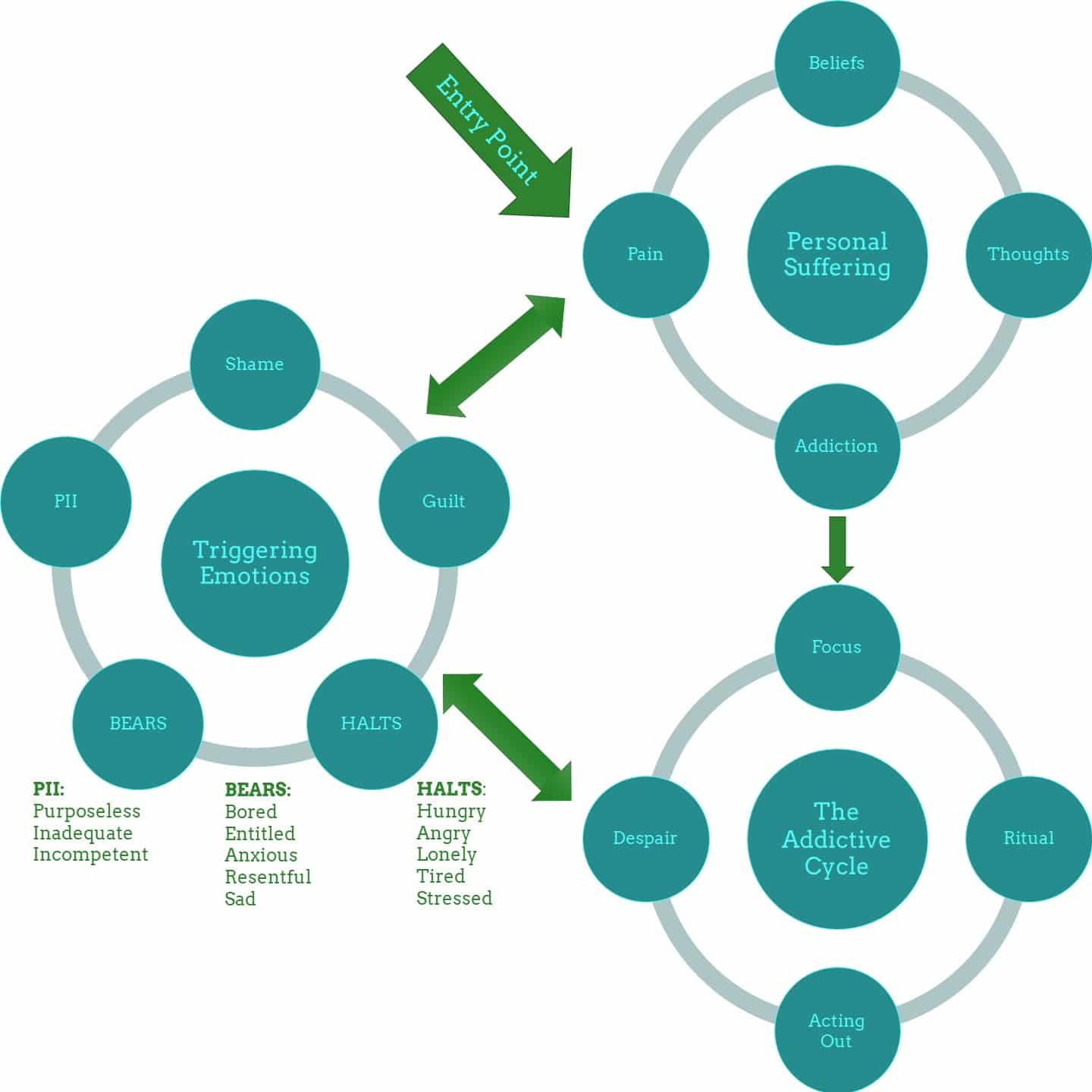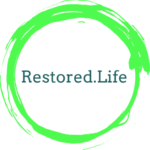Sex Addiction Counseling
Increase Integrity. Reduce Shame, Depression, And Anxiety From Sex Addiction. Don't Stay Trapped. Become Your Best Self. Click The Button Below To Get Started. Get StartedTake The Free SurveySex Addiction Counseling
If you are struggling with sex addiction, you are not alone. There is hope. There is a proven path to overcoming porn or sex addiction. Sex addiction counseling can help you get on that path.
This article reflects my opinions first as a Christian, second as a professional counselor, and third as a sex addiction specialist. My faith forms the core of my identity, my profession describes my skills, and my specialty is what I am best at.
What is Sex Addiction
Sex addiction is a pattern of compulsive sexual behavior that persists despite consequences or attempts to stop. There may be an escalation in the frequency, duration, risk level, or derogatory nature of the behavior (the tolerance element of addiction). Attempts to stop may increase anxiety, depression, or brain fog (the withdrawal element of addiction).
Common negative consequences of sex addiction include mood disturbances, physical health problems, spiritual problems, problems in personal relationships, legal problems, mental health issues, and significantly reduced productivity.
For anyone claiming a Christian identity, another facet of sex addiction that will need to be addressed in counseling is one’s personal idolatry of sex.
Signs of Sex Addiction
Since sexual addiction is not about sex, signs of sex addiction are not limited to compulsive sexual behaviors but also to triggers or consequences of compulsive behaviors.
A brief screening tool like our Personal Challenges Survey can help you decide whether or not you need sex addiction treatment. It takes less than 15 minutes to complete this free, anonymous survey.
There is Controversy Around Diagnosing Sex Addiction
Sex addiction is a real thing. It is only controversial because of competing moral systems around sexuality. Sexual conservatives may not want to acknowledge sex addiction because they prefer to focus on the moral aspects at the cost of the clinical aspects. Sexual liberals may not want to acknowledge sex addiction for fear of pathologizing certain sexual relationships.
Restored Life Counseling is a nonprofit Christian counseling and research center that acknowledges the clinical reality of sex addiction and supports Biblical marriage – committed monogamy between one biological male and one biological female. That does not mean our clients must share our values (many don’t). As a matter of informed consent, we are faith forward and value forward so that no one is surprised by the general direction our professional advice will point.
Many people who struggle with sex addiction don’t even realize they have a problem with sex or addiction. They may acknowledge other addictions, mood disorders, or marital problems, but see their sexual behavior as a separate category in a locked-off compartment in their lives. While in denial, many who struggle with sex addiction may readily acknowledge the negative consequences of the addiction, but they usually see those negative consequences as separate problems. Restoration requires people to see their lives as integrated, not compartmentalized.
For our clients who do not share our values, we still advise that healthy sexual activity should be a source of:
- intimacy,
- connection,
- erotic exploration,
- play,
- joy,
- comfort,
- and fulfillment
- for consenting adults.
Problems occur when sexual activity becomes the only source of these basic human needs, when there is a lack of consent or when minors are involved.
Sexual Addiction and Mental Health
Sex addiction has a chicken-egg relationship with other mental health challenges. Which one came first? The chicken or the egg?
Sometimes, there is a clear timeline where one or more traumas start the story. These are the most “classic” sex addiction cases, and successful treatment MUST include trauma therapy.
In other cases, there is very little sexual acting out with other people, and the main addictive behavior is pornography use. Trauma is not universally absent in these cases but is less common. It is more common that someone was introduced to pornography at a young age, and soon after, he or she also learned that having an orgasm sometimes relieves negative emotions. An association forms between pornography, masturbation, and emotional relief.
As the association strengthens, the person may not realize that his or her romantic relationship skills are regressing. By providing short-term relief, porn consumption creates long-term problems.
Sex Addiction Counseling
The first step to overcoming sex addiction is to see the problem. A brief screening tool like our Personal Challenges Survey may help with that. It takes less than 15 minutes to complete this free, anonymous survey. As long as you answer honestly, it will help you decide whether or not you need sex addiction treatment.
The second step is to seek help. Not everyone will need counseling, but everyone WILL need support of some kind. You cannot overcome sex addiction (or any other addiction) alone.
Everyone seeking sobriety from sexual addiction will need the help of a recovery community of some kind. In the late 60s to early 80s, several different groups around the country adapted the principles of Alcoholics Anonymous (AA) to sexual addiction. There are several 12-step and 12-tradition “S groups” to choose from, each with minor differences. These include Sexaholics Anonymous, Sex Addicts Anonymous, and
There are also many faith-based recovery approaches. We are most familiar with Christian approaches, but there are recovery communities in other faiths as well.
If you’re struggling with sex addiction, there’s hope for recovery. You can recover from your addiction if you choose to get the help you need. It’s never too late to change your life! You can overcome any addiction, including sex addiction.
Make sure to look for a specialist
Because this addiction is complex and more nuanced than other addictions, sex addiction counseling with a Certified Sex Addiction Therapist (CSAT) may be especially helpful as you start your recovery journey. Click here if you’re interested in getting started.
Personal Note: When I started Restored Life Counseling in 2018, I only had my personal recovery experience. Since then, I have taken most, if not all, of the specialist training available for professional counselors who work with sex addiction, porn addiction, infidelity, and betrayal trauma. Most of them are junk. Some of them are actually harmful. By far, the absolute best training is the CSAT training. If you work with a CSAT or CSAT Candidate, you’ll be in good hands.
Long-term outlook
Long-term treatment of sex addiction may include professionally facilitated group therapy, individual therapy, couples counseling, family therapy, and trauma therapy. Your treatment team may include more than one professional counselor. However, every member of your treatment team should hold the value that their job is to work themselves out of a job. While you may need to participate in a recovery community for the long term, you should not need therapy for the long term.
It’s not about sex
Sex Addiction and Issues of Intimacy
A common core belief for people with sex addiction is that sex is their most important need.
People with sex addiction often undervalue non-sexual intimacy and overvalue sexual intimacy. It is not unusual for them to have grown up in homes with rigid rules but little guidance on how to follow them. They often struggle to trust others and express themselves well – both of which are required for successful intimate relationships.
Building Trusting Relationships
A common core belief for people with sex addiction is that no one else will help them meet their needs.
People with sex addiction often struggle with trust. Depending on the circumstances, they can either be too trusting or not trusting enough. Lack of trust is a barrier to intimacy, which is problematic in relationships where intimacy is expected.
Overtrust is when specific people are given more power or authority in one’s life than the trusted person’s relationship, role, or character warrants. This is common in cases of abuse. Sex addiction may develop in situations of overtrust or abuse because it provides (for a while) a sense of control that has been taken away by – or given away to – the overtrusted people.
The Role of Shame in Sex Addiction
Shame is another common experience for people with sex addiction. It comes paired with the belief if people deeply know you, they will reject you. The role that shame plays in the cycle of sex addiction is both a symptom and a cause. Shame is one of the most common triggering emotions for people with sex addiction. It is also one of the most common experiences after acting out.
Sexual experiences outside God’s design for sex (married, monogamous, committed, heterosexual, consensual) create shame. This is a two-edged sword. On one hand, it is a grace of God to point us back to his good creational design for sex. On the other hand, shame hurts and sometimes creates a temptation to seek relief in destructive ways. This does not mean that the issue of sex addiction is purely moralistic. Choices or experiences outside God’s design for sex are necessary but insufficient conditions for sex addiction.
Genesis 2:24 says that in the garden, before the fall, Adam and Eve were both naked and had no shame. This nakedness is not solely sexual. This is soul nakedness, indicating that Adam and Eve deeply knew one another in every way imaginable and that neither of them felt any shame. Curt Thompson has written three excellent books on shame and addressing shame from a Christian perspective. Recovery from sex addiction will always involve addressing shame.
The Biology of Addiction
Addictive behaviors of any kind will change the brain over time. Addictions change how key chemicals in the brain are released or withheld. As addictions progress, tolerance and withdrawal patterns will develop. Tolerance is when the brain and body need more of a drug or experience to release the same amount of a chemical.
Withdrawal is when part of the brain is hungry or starving for a certain chemical, but the trigger to release the chemical (drugs or addictive behaviors) has not occurred. When the trigger has not occurred, the part of the brain that would otherwise release the chemical withholds it instead. The part of the brain that is hungry or starving for the chemical will send other signals to the body and brain that increase the sense of pain or discomfort. This is why many substance abusers talk about using only to “get well.”
The specific biology of any addiction depends on the substance or behavior being abused, but there is an undeniable biological element to all addictions.
What God Says about Sex Addiction
The Bible says nothing explicitly about sex addiction. It says a lot about sex. However, some often neglected passages about sex that are relevant to treating sex addiction include the following:
- Genesis 1-2 – the story of creation includes several key passages that articulate God’s good creational design for sex. Sex is a gift from God that helps us worship him when used within the parameters of his design.
- Genesis 3 – the story of the fall has several implications for how we experience sex in a fallen world.
- Genesis 24:67 – when Isaac marries Rebekah, he is comforted by her in the act of sex after his mother’s death. This is a Biblical example of sex being a source of comfort.
- Genesis 38 – when Judah impregnates Tamar. For Tamar’s scheme to work, she had to know that Judah had a habit of this sort of thing. The Bible does not tell us of any such behavior before or after these events.
- II Samuel 7:12 – when David comforts Bathsheba after the death of their first child by having sex with her.
Full Biblical treatment of sex is out of the scope of this article, but here are several books that I highly recommend on the subject (yes, these are affiliate links).
- Rethinking Sexuality, by Juli Slattery
- The Great Sex Rescue, by Sheila Wray-Gregoire
- Sex for Christians, by Lewis Smedes
- Theology of the Body, by Pope John Paul II
Christian Counseling for Sex Addiction
Effective Christian counseling for sex addiction will incorporate scripture and prayer as key tools in the process of healing. It may also include helping some clients develop a more robust theology of sex, sexuality, and marriage. Without at least the ingredients of scripture, prayer, and theological growth, it is not Christian counsel.
Christian counseling for sex addiction must also integrate empirically supported wisdom from the community of professional counselors and researchers who treat sex addiction. Even with the greatest possible respect extended to our community, there is much claimed about sex addiction and its effective treatment that is neither empirically supported nor compatible with a Biblical worldview. A great deal of wise discernment is necessary. This inevitably bumps into the debate between Biblical Counseling and Integrative Counseling, which cannot be fully addressed here.
The Sex Addiction Cycle
This image and the concepts it represents are built on the foundation laid by the work of Patrick Carnes. Successful counseling for sex addiction MUST address all parts of the addictive cycle. If you cannot find a Certified Sex Addiction Therapist (CSAT) available to work with you, share this section of this article with your therapist. It will help inform his or her treatment plan.

Personal Suffering
Because we live in a fallen world, suffering is a normal human experience. I have chosen the word “suffering” because it conveys that something is painful, at least emotionally, if not physically. The word “suffering” is also broad enough to include the concept of trauma without overusing the word “trauma.” Something in violation of God’s good creation design is present whenever suffering is present.
When we experience suffering, we all have certain beliefs, values, and thoughts about the suffering itself, whatever situations are causing it, and the particular pain it is causing. The experience of pain and the connected beliefs, values, and thoughts may create a feedback loop that increases one’s sense of pain beyond reality. At some point, the pain level becomes intolerable, and some people turn to addictive behavior or substances to escape or numb the pain.
Personal suffering may be experienced without turning to addiction. Even people struggling with addiction will have a greater capacity for some types of suffering than others. There is no absolute path from suffering to addiction. But every path to addiction starts with suffering.
The problem with turning to addictive behaviors or substances for relief from suffering is that the relief is short-lived, incomplete, and inevitably causes more suffering in the long run. As any addiction progresses, life outside the addiction gets smaller, the number of triggering emotions increases, and each triggering emotion becomes more sensitive to being triggered.
The Addiction Cycle
The addiction cycle begins internally with a focus, fixation, or preoccupation with the pain of suffering and the need for relief. The focus is on relief in the first few uses of an addictive substance or episodes of addictive behavior. But once the brain connects the dots between a given substance or behavior and relief from suffering, the focus will shift to getting the next fix or opportunity to act out.
The external portion of the addiction cycle starts whenever the ritual begins. The ritual includes all the actions one takes to create an opportunity to act out (or use), gather the necessary materials, go to the place to act out, act out, come down, clean up, recover, and return.
At some point, after the ritual has ended, varying degrees of despair will set in. Despair may include guilt, shame, fear of getting caught, etc. Regardless of which particular flavor despair takes, it will eventually lead to other triggering emotions, and the cycle will start over.
Some representations of the addiction cycle include a phase called “control.” Where this is included, it is essentially a “positive” ritual to help one look good to the outside world and may include superficial efforts to prevent relapse. The control phase is external and action based. I have chosen to focus on triggering emotions rather than control-oriented actions. The reason is that the control phase is not universal, but triggering emotions are. The control phase will always incite triggering emotions, which triggering emotions depend on what one is trying to control (relapse or the perception of others).
Triggering Emotions
Addiction counselors wiser than I have come up with two acrostics that cover the most common triggering emotions that people facing addiction experience. I have added one of my own, based on the “what keeps me here?” part of Jay Stringer’s book, Unwanted. These are by no means ALL of the triggering emotions that exist in human experience. Still, they provide a great starting point for anyone to start understanding his or her addiction cycle.
HALTS
Hungry
Angry
Lonely
Tired
Stressed
BEARS
Bored
Entitled
Anxious
Resentful
Sad
PII
Purposeless
Inadequate
Incompetent
What are the treatments for sex addiction?
12-Step Groups or Peer Support Groups
This is where many people start and where most people stay long-term. Most of these groups are free, though some charge marginal fees. At Restored Life Counseling, it is our value that most of our clients will be able to maintain long-term recovery in this care setting without our direct support.
We recommend you try at least three different groups for at least three meetings each. This will help you understand how different groups function and decide which style, curriculum, or format is best for you.
We also encourage everyone in the first 90 days of recovery to do 90 meetings in 90 days. This is the best way to get your first 90 days of sobriety and set yourself up for long-term success in recovery.
If you’re trying to get sober from sex addiction, your primary group should be focused on sex addiction. But recovery principles apply to any addiction. So go to any available meeting during your 90 in 90. Your primary group is where your sponsor/mentor/main accountability partner also attends.
For Christians, it is also important to find a discipleship community that is part of your home church where recovery can be discussed. Christian discipleship should not dead end with recovery from addiction, but if addiction is part of your story, you will need to see treating your addiction as the front door to long term discipleship.
Here are some groups worth looking into, to see whether they have any meetings in your area.
- Sexaholics Anonymous.
- Sex Addicts Anonymous.
- Sex and Love Addicts Anonymous.
- Porn Addicts Anonymous.
- Samson Society (Christian Oriented).
- 423 Men (Christian Oriented).
- Pure Desire (Christian Oriented).
- Intercept (Christian Oriented).
- For Men Only (Christian Oriented).
- Alcoholics Anonymous.
- Narcotics Anonymous.
- Celebrate Recovery (Christian Oriented).
- Gamblers Anonymous.
Outpatient Sexual Addiction Counseling
This is the most common setting to see a professional counselor and may include online therapy, depending on where you are. Most often, this is individual counseling but it may also include couples counseling to address the harm of the addiction in marriage. If you see your counselor no more than once a week, with the possible exception of group therapy, you are in outpatient care.
Restored Life Counseling provides outpatient services either in person or through online therapy to Arizona residents and online therapy only for residents of Washington State. If you live in either state and want to know more, check out our get started page.
If you live outside of Washington or Arizona, you can find a great directory of Certified Sex Addictions Therapists at IITAP.com.
Intensive Outpatient Treatment Programs
These programs will typically include group therapy two or more times per week and one or more individual therapy sessions per week. Here are some places to check out.
- Bethesda Workshops
- Begin Again Institute, LLC
- Blue Tiger Recovery
- Center for Healthy Sex
- Mindful Centers for Addiction and Trauma Therapy
- Paradise Creek Recovery
- Psychological Counseling Services (PCS)
- Trafalgar Addiction Treatment Centres (Canada)
- The Meadows Outpatient Center
- Valiant Living
Inpatient Treatment Programs
Inpatient treatment should be reserved for extreme situations. In these treatment settings, you live on-site for a set period of time and attend individual or group therapy several times per week. If your attempts at recovery in other settings are unsuccessful, you may want to try inpatient treatment.
- Capstone Treatment Center
- Caron Pennsylvania
- Gentle Path at The Meadows, Willow House at the Meadows, and Rio Retreat Center at the Meadows
- Gratitude at Pine Grove
- Keystone Extended Care Unit
- Prescott House
- Pine Grove
- Trafalgar Addiction Treatment Centres (Canada)
- The Ranch Treatment Center – Tennessee
- Valiant Living
Medication
Sex addiction is often co-occurring with other mental health disorders. The other disorder may be post-traumatic stress, a mood disorder, ADHD, or a second addiction. The other disorder may even play its own role in the sex addiction cycle. In cases where a medication is known to help with the co-occurring disorder, that medication may help with sex addiction.
Frequently Asked Questions
Are sexual addictions normal?
No, sexual addictions are not normal. Sadly, they are common. The best available research (which predates smartphones) estimates that between 3% and 6% of the US population struggle with some form of sex addiction. However, research on the prevalence of sex addiction is in desperate need of an update. If anything, the advent of smartphones, “free” porn sites, and hookup apps is likely to increase the prevalence of sex addiction.
What are the symptoms of sex addiction?
Since sexual addiction is not about sex, signs of sex addiction are not limited to compulsive sexual behaviors but also to triggers or consequences of compulsive behaviors.
A brief screening tool like our Personal Challenges Survey can help you decide whether or not you need sex addiction treatment. It takes less than 15 minutes to complete this free, anonymous survey.
Alternatively, if you experience three or more of the following symptoms, seeking treatment may be wise (Carnes et al. ):
- Recurrent failure to resist impulses to engage in specific sexual behavior.
- Frequent engaging in sexual behaviors to a greater extent or over a longer period of time than intended.
- Persistent desire or unsuccessful efforts to stop, reduce, or control sexual behaviors.
- Inordinate amount of time spent in obtaining sex, being sexual, or recovering from sexual experience.
- Preoccupation with sexual behavior or preparatory activities.
- Frequent engaging in sexual behavior when expected to fulfill occupational, academic, domestic, or social obligations.
- Continuation of sexual behavior despite knowledge of having a persistent or recurrent social, financial, psychological, or physical problem that is caused or exacerbated by the behavior.
- Need to increase the intensity, frequency, number, or risk of sexual behaviors to achieve the desired effect, or diminished effect with continued sexual behaviors at the same level of intensity, frequency, number, or risk.
- Giving up or limiting social, occupational, or recreational activities because of sexual behavior
- Distress, anxiety, restlessness, or irritability if unable to engage in sexual behavior.
What if it’s not an addiction but a sexual compulsion?
This is certainly possible. Sexual acting out may sometimes be a symptom of Obsessive Compulsive Disorder. This is why an accurate diagnosis is critical. Either way, treatment should be a serious consideration. Once appropriately diagnosed, you can follow the right treatment plan for your situation.
Can hypersexuality go away?
Hypersexuality may be a symptom of a mental health disorder other than sex addiction or a symptom of sex addiction. This is why an accurate diagnosis is critical. Either way, treatment should be a serious consideration. Once appropriately diagnosed, you can follow the right treatment plan for your situation.
How can I find a sex addiction therapist near me?
If you’re in Washington State or Arizona, consider starting with Restored Life Counseling. If not, check out this directory.
What’s the outlook for sex addiction?
You can overcome sex addiction. No one recovers from sex addiction without help. Not everyone will need therapy to successfully overcome sex addiction. However, therapy may speed up your recovery. In the IITAP* community, the typical expectation is that stable recovery will take three to five years. However, this expectation needs to be subjected to new research.
*IITAP is the organization that trains Certified Sex Addiction Therapists, Certified Partner Trauma Therapists, and Certified Couples Betrayal Recovery Therapists.
Why Our Approach Works
Our approach to counseling integrates the best research with the best practices in a clear way. (Often, you get either the best practices or the best research, rarely both).
Thorough Intake Assessment
You are a unique individual, not a formula. You are also not the first, only, or last person with your experiences and emotions. We integrate your story with your survey responses to get the most accurate diagnosis possible.
A Clear Plan, Personally Applied
We know what research says works to help people get better. We also know where to adjust the plan for personal fit and the best long-term results.
Outcome Tracking (optional, but highly recommended)
Tracking the results from your efforts helps you feel better, faster. We value your healing over our revenue. We want you out there in the world making your mark, not stuck with us forever.
Next Steps
If you're ready, you can get started with counseling at Restored Life. Or, if you're not sure whether you need counseling, take the free survey to screen for the most common mental health challenges that people face. Get StartedTake The Free SurveyChallenges We Help With
Anxiety
Reduce Time And Energy Wasted On Worry. Regain Control Of Your Life. Achieve Your Potential.
Depression
Regain Your Sense Of Hope, Motivation, And Purpose. Increase Energy And Vitality. Enjoy Life Again.
Couples Counseling
Reduce Conflict. Improve Communication. Increase Intimacy And Connection. Dream Together.
Porn or Sex Addiction
Increase Integrity. Reduce Shame, Depression, And Anxiety From Porn or Sex Addiction. Don’t Stay Trapped.
Infidelity & Betrayal Trauma
Restore Trust And Commitment. Process The Pain Without Shame. Regain Your Footing. Believe In Yourself And Your Relationship Again.
Try Our Free Resources
We offer these resources to the community for free. No email or identifying information is required to access these tools that can help you overcome your challenges.
Personal Challenges Survey
A free survey with brief screening scales for eight of the most common personal challenges that people face. Also provides suggestions for overcoming your challenges.
The Seeds Cycle
A tool for understanding personal and relationship patterns.
Things to Try to Improve Mood
A menu of small habits that can make big changes for depression, anxiety, or anger.
Things to Try to Improve Relationships
A menu of small habits that can make big changes in your relationships.
Things to Try to Overcome Chaos
A menu of small habits that make big changes for addiction or trauma.
Signs You've Found the Right Therapist
80% of the benefit from therapy comes from being matched to the right therapist. Here are seven signs of a good match.
How to Get the Help You Need on ANY Budget
Maximize your budget for therapy and your benefit FROM therapy.
Recommended Reading and Podcasts
A list of books and podcasts we most often recommend to our clients.
Recovery Groups
Support and accountability groups are a critical part of recovery. Here is a list of groups we recommend.
How To Get The Most Out Of Your Health Insurance Coverage
Strategies You Can Use Right Now - And At Your Next Enrollment
Please help us to help as many people as possible by donating below.
If you want, you can specify which fund you would like to donate to.
The General Fund is allocated at the board's discretion, on a monthly basis.
The Scholarship Fund helps pay for therapy for uninsured people who cannot afford therapy.
The Strategic Plan fund helps us expand our service capacity and publish new resources. The Strategic Plan is set on an annual basis by the board of directors. Our current strategic plan is always available on our about page.















